Learn how to bake with soaked flour to maximize nutrition and digestibility and make the best whole grain muffins you have ever had!
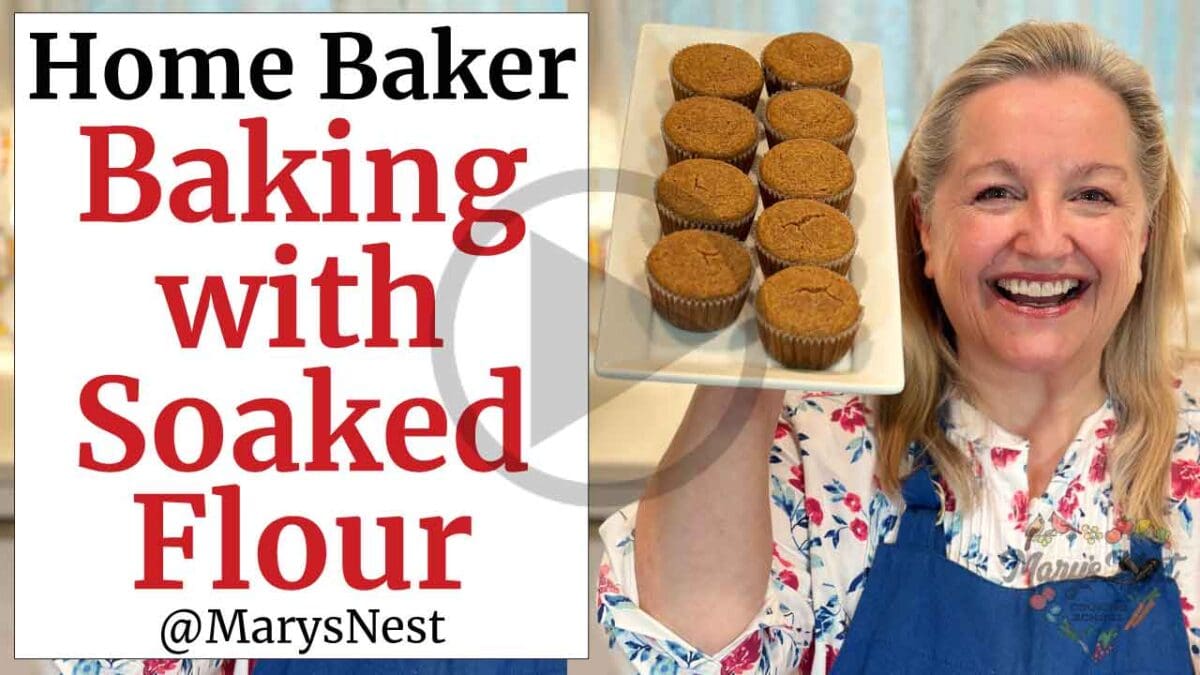
Affiliates note: As an Amazon Associate I earn from qualifying purchases. My content may contain affiliate links to products and services. If you click through and make a purchase, I’ll receive a small commission. It does not affect the price you pay.
Table of Contents
- Homemade Soaked Flour Muffins
- Super Soft, Airy, and Flavorful Muffins
- Preparing Flour For Soaking
- Soaked Flour Muffin Ingredients
- How to Make Soaked Flour Whole Grain Muffins
- Variations
- Recipe Tips
- Storing and Reheating
- Grind Your Own Flour with the Mockmill
- Download Your Free 36-Page Pantry List
- The Modern Pioneer Cookbook
- Join the Traditional Foods Kitchen Academy
- Kitchen Academy Videos
- How to Make Soaked Flour Whole Grain Muffins Recipe
- Shop for items used in this blog post or video
Homemade Soaked Flour Muffins
Whole grain muffins and other baked goods can be very nutritious, whether they are made with modern-day whole wheat flour or one of the ancient grain flours, like spelt or einkorn. However, they can only give us their maximum nutrition if the whole grains are properly prepared.
For our digestive systems to absorb all the nutrients that whole grains have to offer, we have to deactivate some of the phytic acid that whole grains contain. We can deactivate the phytic acid in whole grains by making our baked goods with the following:
- A sourdough starter,
- Sprouted flour, or
- Soaked flour
If you’re new to traditional foods baking, one of the easiest ways to deactivate the phytic acid in whole grains is to learn how to soak flour. By following this traditional foods technique, you will be happily rewarded with light, whole grain baked goods that you’ve maximized for nutrition and digestibility!
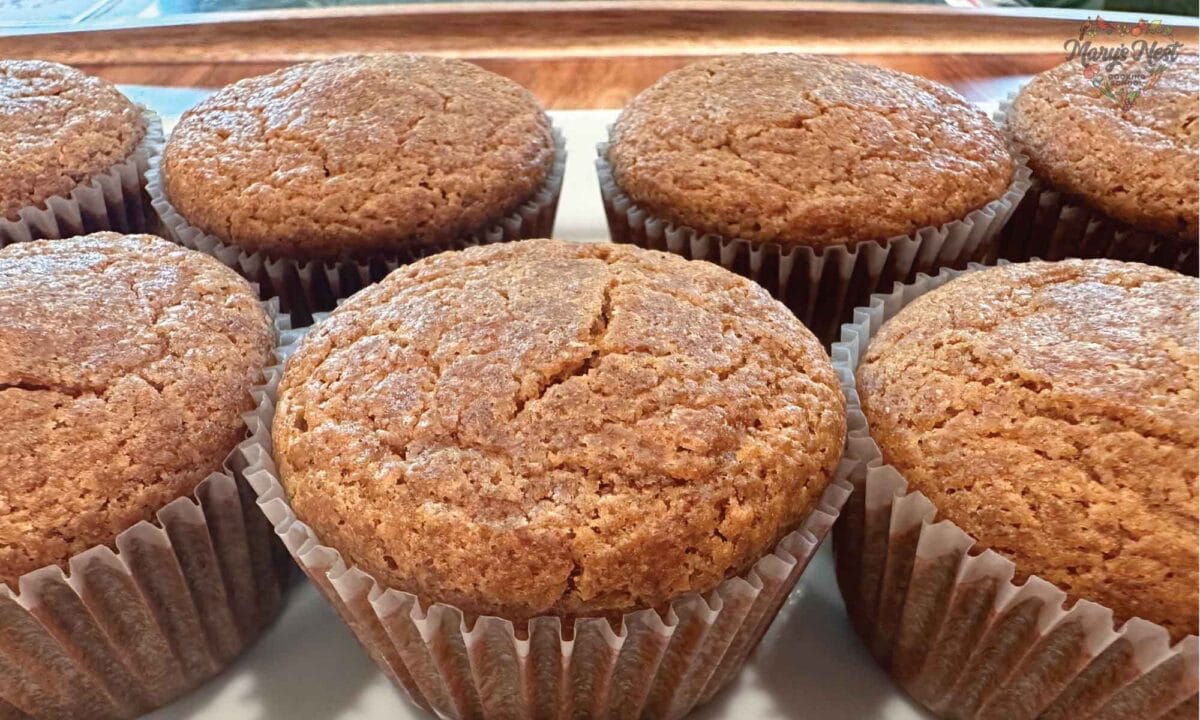
Super Soft, Airy, and Flavorful Muffins
If you are used to baking whole grain muffins that turn out dense and often soggy in the center, you are in for a welcome change. Whole grain muffins made with soaked flour are soft, airy, and flavorful!
Best of all, the muffins recipe I share in this post provides a basic framework you can use to make a variety of different types of muffins to suit your taste. The recipe calls for one cup of mix-ins, so you decide what to add. You can add a full cup of a mix-in or mix and match with a half cup of this and a half cup of that!
You also get to play around with the flavored extracts and the spices. The versatility of this recipe is what makes it perfect. As long as you start with soaked flour, you can make a wide assortment of delicious and nutritious whole grain muffins!
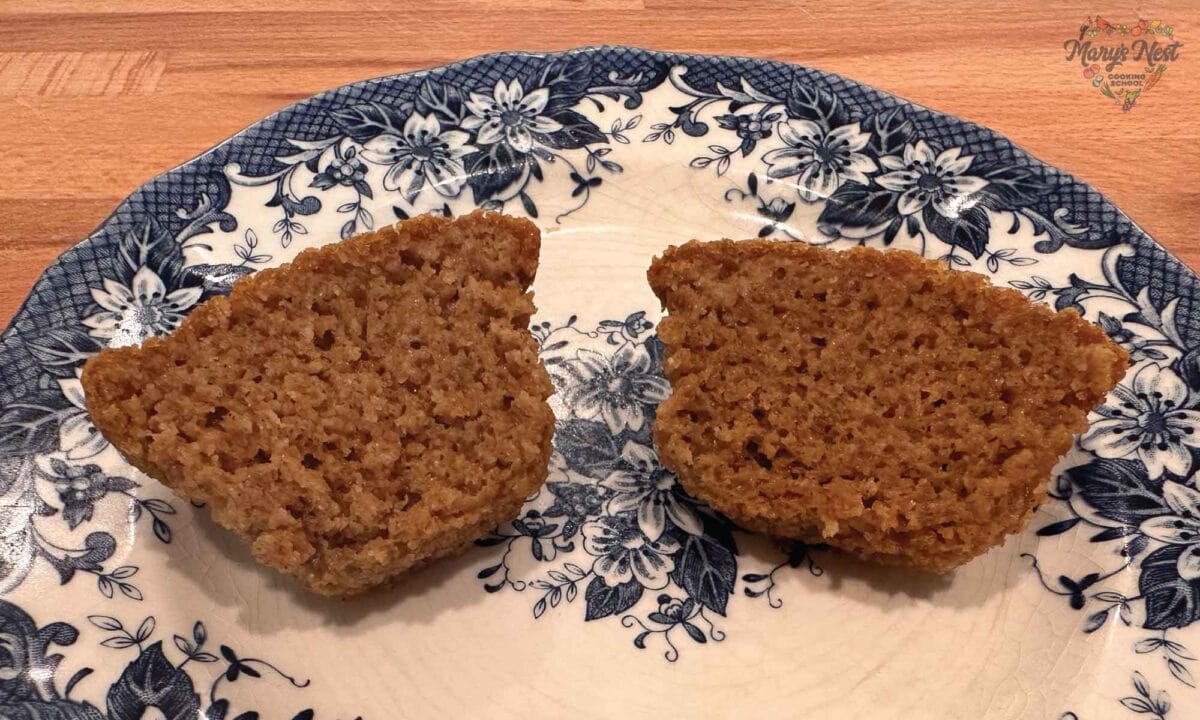
Soaked flour is whole grain flour that has been soaked in some type of acidulated or cultured liquid. Examples of this liquid include water with vinegar, water with lemon juice, kefir, diluted yogurt, raw milk, or diluted clabbered milk.
Phytic acid is a substance found in the seeds of plants. This acid serves to help protect the seeds in nature. Whole grains include phytic acid, and if some of the phytic acid is not deactivated, it can be difficult for the human digestion system to fully absorb the minerals in whole grains. Phytic acid can prevent the absorption of iron, zinc, and calcium, which can lead to mineral deficiencies. This is why phytic acid is often referred to as an anti-nutrient.
But in small quantities, phytic acid also has a good side. It is an antioxidant, which means that it can protect our bodies from oxidation that could otherwise lead to damaging our cells!
Soaking deactivates some of the phytic acid contained in whole grain flour. However, it does not deactivate all the phytic acid, but that’s okay. A lower level of phytic acid acts as an antioxidant that protects our cells from damage.
By soaking whole grain flour, we can deactivate some of the phytic acid so that our digestive systems can absorb the minerals in whole grains. However, soaking still allows some of the phytic acid to remain intact and work as an antioxidant in our bodies.
Soaking whole grain flour does not remove gluten, but it does break down some of the gluten by making whole grains easier to digest for those who may be only mildly sensitive to gluten. However, it is important to note that soaking whole grain flour IS NOT gluten-free!
No, you do not need to soak white flour, which is flour where the bran and the germ have been sifted out. Examples of white flour include all-purpose flour or bread flour.
You want to soak whole grains or whole grain flour to deactivate some of the anti-nutrient phytic acid contained in the whole grains. When you deactivate some of the phytic acid, your digestive system can better absorb the minerals in the bran and the germ of the whole grain. White flour has had the bran and the germ removed and, therefore, no longer contains any anti-nutrients that need to be deactivated or neutralized through soaking.
All whole grains flours benefit from soaking.
Whole grain flour is best soaked for a minimum of eight hours and a maximum of 24 hours. The longer the soak, the more the phytic acid will be deactivated and the more the gluten will be broken down, which will assist in creating a lighter, less dense whole grain quick bread or muffin.
You should soak whole grain flour in some type of acidulated or cultured liquid. This liquid can be something as simple as water with a bit of vinegar or lemon juice added. Or you can soak whole grain flour in kefir, diluted yogurt, or raw or clabbered milk.
Preparing Flour For Soaking
Find the full printable recipe with measurements below.
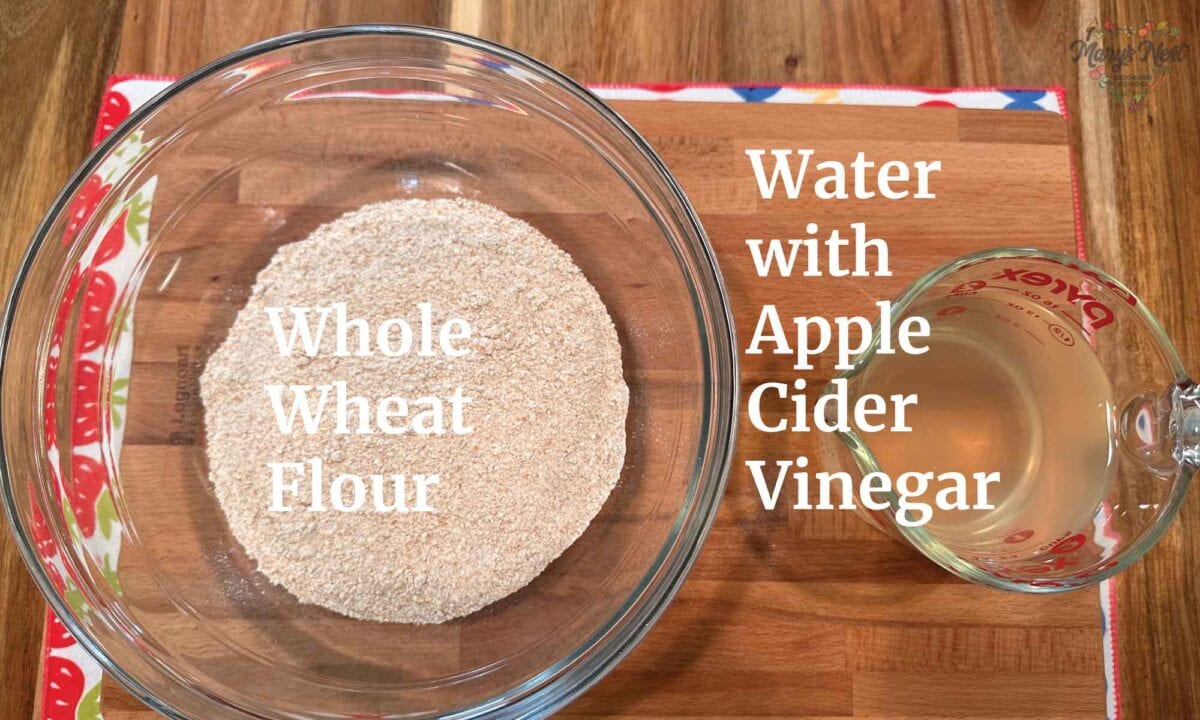
Soaking whole grain flour is very easy today. All it takes is mixing equal amounts of flour with an acidulated or cultured liquid. In this recipe, I used two cups of whole wheat flour mixed with 2 cups of water, to which I added 1 tablespoon of raw apple cider vinegar. Then allow the flour to soak in the liquid for at least eight hours or as long as 24 hours.
Other forms of acidulated or cultured liquid that you can use to soak whole grain flour include:
- Kefir
- Milk (Clabbered, Diluted)
- Milk (Raw)
- Water with Lemon Juice
- Whey
- Yogurt (Diluted)
The longer you soak the flour, the more the phytic acid will be deactivated, and the more the gluten will be broken down.
Soaked Flour Muffin Ingredients
Find the full printable recipe with measurements below.
To make soaked flour muffins, you will need the following:
- Soaked Flour
- Sweetener
- Eggs
- Melted Butter
- Flavored Extract
- Mix-Ins of Your Choice (I used pumpkin puree)
- Plus, Rising Agents and Salt
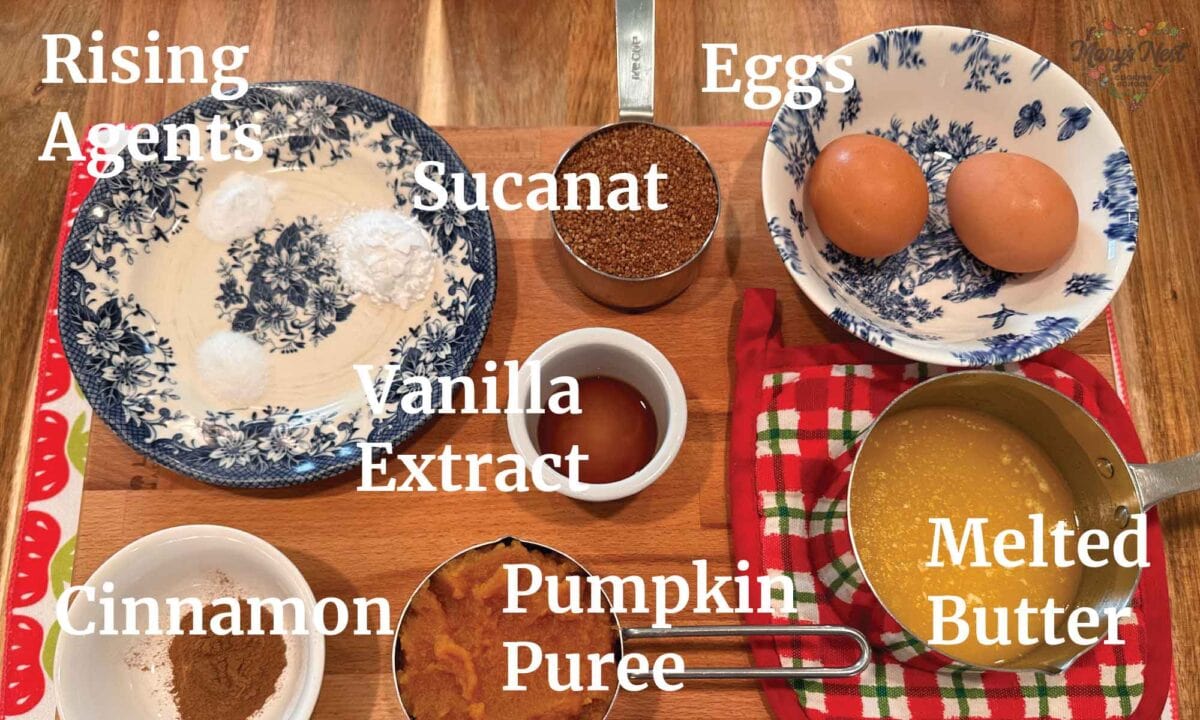
If the term rising agents is new to you, it simply refers to various types of ingredients used in baked goods to help them rise! For this recipe, we will be using baking powder and baking soda,
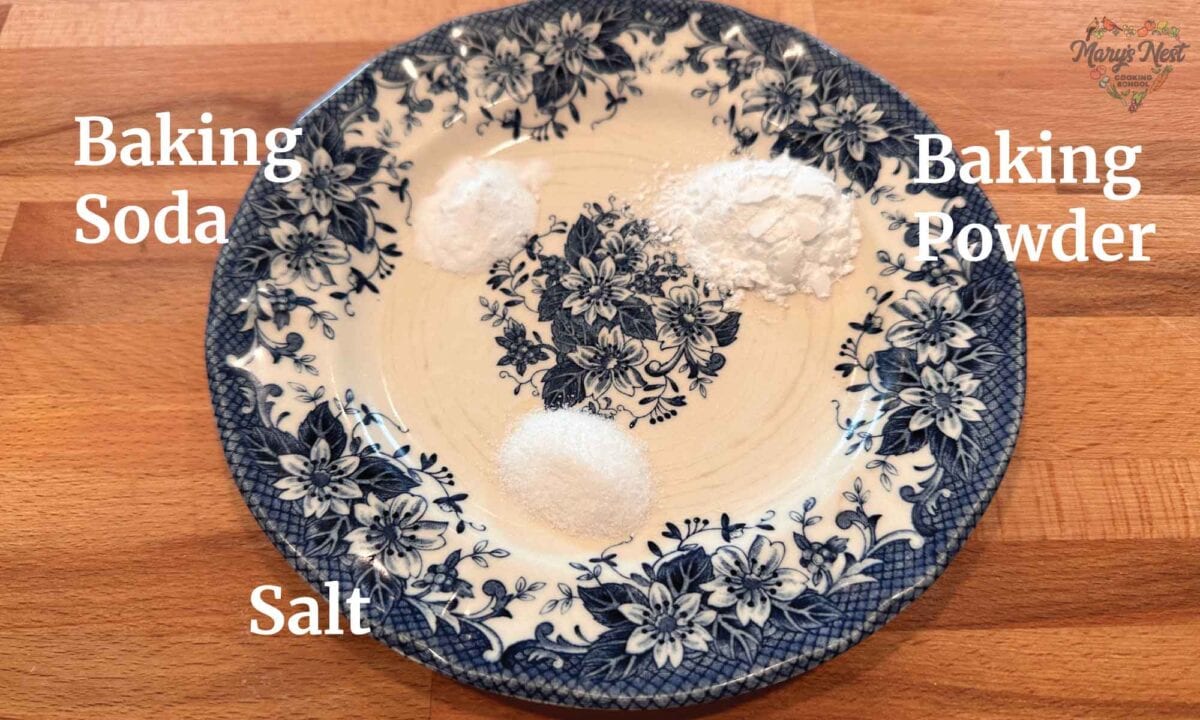
How to Make Soaked Flour Whole Grain Muffins
Find the full printable recipe with instructions below.
- Preheat the oven to 425°F (218°C).
- Mix the eggs with the sweetener in a medium-sized bowl.
- Add in all the remaining ingredients to the egg and sweetener mixture except for the soaked flour, baking powder, and baking soda. Mix well.
- Add this mixture to the soaked flour and mix well. This is your muffin batter.
- Finally, add the baking powder and the baking soda to the muffin batter and mix gently to incorporate.
- Spoon the muffin batter into regular-sized muffin cup liners in a 12-cup muffin tin to 3/4 full. If you do not have muffin cup liners, grease each muffin cup with butter.
- Bake muffins at 425°F (218°C) for 5 minutes and then lower the oven temperature to 350°F (177°C) and continue to bake the muffins for approximately 25 minutes or until a toothpick inserted into the middle of one muffin comes out clean.
Variations
I made pumpkin spice muffins, but you can make whatever flavor you like. Some variations include:
- Apple Cinnamon Muffins
- Banana Nut Muffins
- Blueberry Muffins
- Chocolate Chip Muffins
- Vanilla Lemon Muffins
- Zucchini Muffins
But whatever variety you decide to make, the best thing about these muffins is that they are much lighter than whole grain muffins made without soaked flour. They are also a lot more nutritious than any muffin made with white flour!
Recipe Tips
Making Soaked Flour Whole Grain Muffins is easy, but a few tips can make them turn out perfect every time.
- Preheat the oven to 425°F (218°C) and bake the muffins at this temperature for the first 5 minutes before lowering the oven temperature to 350°F (177°C). This high oven temperature at the beginning of the baking cycle will allow the muffins to rise nicely and form a nice crispy golden crown.
- After the 8-24 hour soak, your soaked flour should look like pancake batter. If not, add additional liquid, such as buttermilk.
- Once you add the baking powder and baking soda to the batter, do not over mix.
Storing and Reheating
Refrigerated: Muffins will stay fresh for 3-4 days if stored in an airtight container.
Freezing: After the muffins have cooled completely, add them to a freezer-safe airtight container. Store in the freezer for 2 to 3 months. Reheat in a 200°F (93°C) for no more than 15 minutes.
Grind Your Own Flour with the Mockmill
In my soaked flour video, I talk about the option of grinding your own flour. If you want to create your own flour, you’ll need a manual or electric grain mill.
When it comes to electric grain mills, after I did A LOT of research, I decided to buy a Mockmill. And am I so happy I did! The Mockmill is a very affordable but beautifully crafted German-made mill that stone grinds grain with settings ranging from 1 to 10—fine to coarse ground grain.
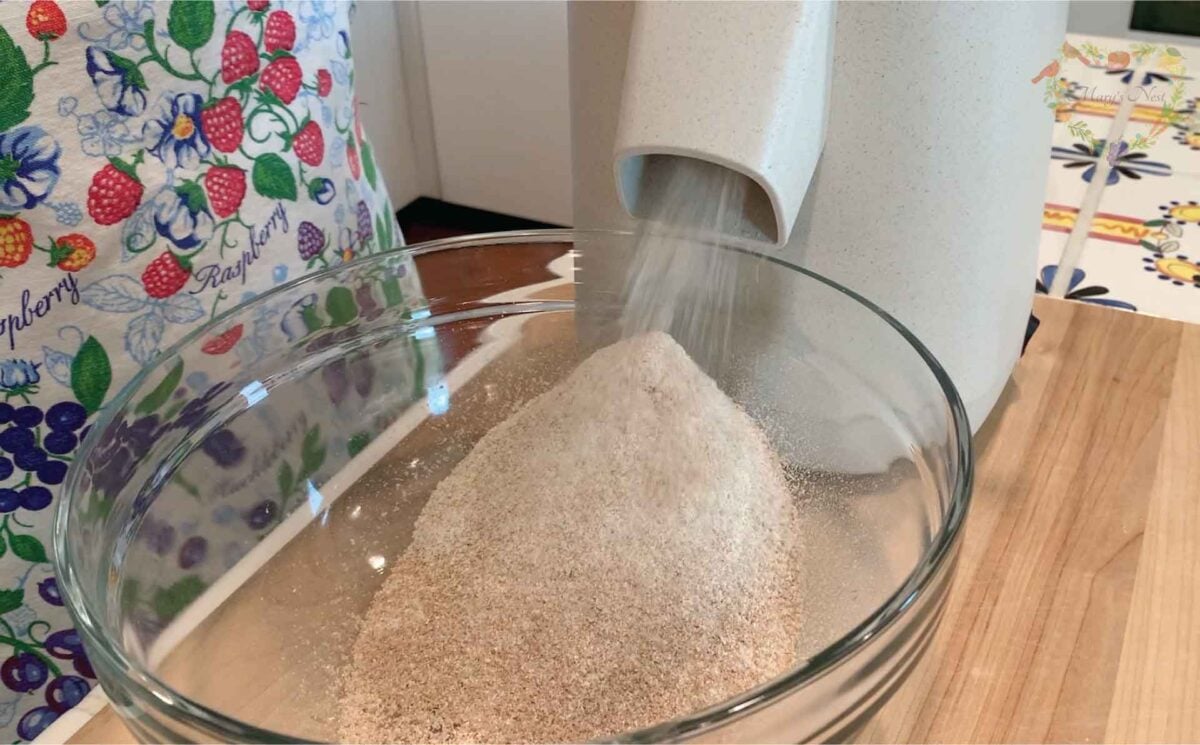
Learn more about Mockmill electric grain mills for making fresh flour and their Flake Lover’s Flaker that flakes whole grain in minutes. (This is not a sponsored post, I bought the Mockmill products that I show you, and I’m a happy user of their devices in my kitchen.)
- Mockmill 100 Grain Mill unboxing
- Get the Mockmill 100 Stone Grain Mill (Same product I show you my unboxing video.)
- Flake Lover’s Flaker from Mockmill in action (Using this device, you can flake whole grain in minutes.)
Download Your Free 36-Page Pantry List
For an extensive list of the traditional foods you can make and purchase to stock your pantry, be sure to download my free 36-page Traditional Foods Pantry List. This comprehensive eBook is full of links to recipe videos, helpful articles, and more!
And if you’re looking for a printed book full of my traditional foods recipes that shows you how to create a traditional foods kitchen, be sure to order your copy of my bestselling book, The Modern Pioneer Cookbook.
Join the Traditional Foods Kitchen Academy
Are you looking for more traditional foods videos? If so, I invite you to join the Traditional Foods Kitchen Academy. Members of this optional paid YouTube community get access to exclusive videos, live streams, and other members-only perks. Plus, your YouTube comments include a special members-only badge.
Kitchen Academy Videos
Why We Should Incorporate Mackerel Into Our Diet
Easy and nourishing ways to enjoy mackerel into your meals.
The Gentle Power of Fermented Beverages—All Year Long
Learn how fermented beverages gently support digestion year-round, shifting with the seasons to nourish the gut through traditional, living drinks.
How to Make Oatmeal Higher in Protein (The Old-Fashioned Way)
Turn simple oats into a hearty, protein-rich porridge.
Stay in Touch with Mary’s Nest
- Subscribe to My YouTube Channel for Traditional Foods Videos (Free) - When you subscribe, be sure to click on the notification bell that will let you know each time I upload a new video.
- Subscribe to Mary’s Traditional Foods Newsletter (Free) - Get a free 36-page eBook for signing up: How to Stock Your Essential Traditional Foods Four-Corners Pantry.
- Join the Traditional Foods Kitchen Academy - For more detailed videos and exclusive members-only perks, join my YouTube membership community.
- Order The Modern Pioneer Cookbook - Get a hardcover book of Mary's nourishing recipes from a Traditional Foods Kitchen. This bestselling cookbook is published by Penguin Random House with their DK imprint.
- Order The Modern Pioneer Pantry - Get Mary's latest hardcover cookbook about preserving food and making delicious meals from your Four Corners Pantry. Mary's second cookbook is also published by Penguin Random House.
I look forward to having you join me in my Texas Hill Country Kitchen!
I’d like to receive more tips and recipes from Mary’s Nest.
How to Make Soaked Flour Whole Grain Muffins
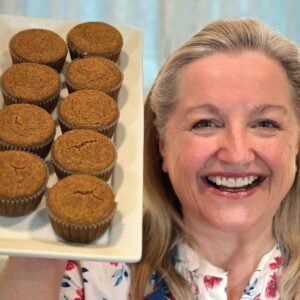
Equipment
- 1 Muffin Tin 6-cup or 12-cup
Ingredients
Soaked Flour
- 2 cups whole grain flour I used whole wheat flour, but you can use any whole grain flour, including spelt flour or einkorn flour.
- 2 cups acidulated or cultured liquid I used water with 1 tablespoon of raw apple cider vinegar. Other options include water with lemon juice, kefir, whey, diluted yogurt, raw milk, or diluted clabber.
Soaked Flour Muffins
- soaked flour from recipe above
- buttermilk or other liquid, optional milk, raw milk, etc.
- 2 large eggs
- 1/2 cup whole dry sweetener I used only 1/2 cup sucanat, but you can increase the sweetener to 1 cup. Other sweetener options include maple sugar or date sugar. You can also use liquid sweeteners at a lower quantity. For example, 1 cup whole dry sweetener is equivalent 3/4 cup liquid sweetener.
- 1/2 cup butter, melted and cooled slightly I used 1/2 cup butter for moist muffins, but you can reduce the amount of butter to 1/4 cup. If you do not have muffin cup liners, you will need additional butter to grease the muffin cups.
- 1 cup "mix-ins" I used pumpkin purée, but other options include shredded zucchini, carrot, apple, mashed banana, berries, and chocolate chips.
- 2 tsp spice I used cinnamon, but you can use any spice, including allspice, nutmeg, cloves, and cardamom.
- 1 tsp flavored extract I used vanilla extract, but you can use any flavor.
- 1/2 tsp fine ground sea salt
- 2 tsp baking powder
- 1/2 tsp baking soda
Instructions
How to Soak Flour
- Add flour to a large bowl and add in the acidulated liquid. Mix well.
- Cover the bowl with a dish towel and leave undisturbed at room temperature for 8 to 24 hours.
How to Make Soaked Flour Muffins
- Preheat oven to 425°F (218°C).
- Line a 6-cup or 12-cup muffin tin with muffin cup liners. Set aside. If you do not have muffin cup liners, coat each muffin cup well with butter.
- If the soaked flour does not look like pancake batter, add buttermilk or other liquid to thin. Set aside.
- In a medium bowl, whisk eggs, add in sweetener, and then whisk until the sweetener dissolves and is fully incorporated with the eggs.
- Add the remaining ingredients to the egg and sweetener mixture except for the soaked flour, the baking powder, and the baking soda. Mix well.
- Add this mixture to the soaked flour and mix well until thoroughly incorporated. This is your muffin batter.
- Sift the baking powder and baking soda into the muffin batter using a mesh strainer. Mix gently to incorporate but DO NOT over mix.
- Fill each muffin cup 3/4 full with batter.
- Place the muffin tin on the middle rack of the oven and bake the muffins for 5 minutes at 425°F (218°C).
- After 5 minutes, lower the oven temperature to 350°F (177°C) and continue to bake the muffins for an additional 25 minutes or until the tops are rounded and golden brown and a toothpick inserted in the middle of a muffin comes out clean.
- Repeat with the remaining batter until all muffins are baked.
- When the muffins are baked, remove them from the oven and place the muffin tin on a heatproof surface.
- Allow the muffins to cool slightly. Once you can handle the muffins, remove them from the muffin tin, transfer them to a cooling rack, and allow them to cool further.
- Stored in an airtight container, muffins will stay fresh in the refrigerator for 3-4 days. Stored in a freezer-safe airtight container, muffins will stay fresh in the freezer for 2-3 months.
- To reheat muffins, place in a 200°F (93°C) oven for no longer than 15 minutes.
Video
Notes
Nutrition
Shop for items used in this blog post or video
Favorite Baking Supplies
- Favorite Aprons
- 10-Piece Glass Bowl Set
- Glass Measuring Cup
- Magic Whisk
- Spatula
- Stainless Steel Measuring Cups and Spoons
- Muffin Tin
- Paper Muffin Liners
Amazon Shop and Shopping Guide
- Visit Mary’s Nest Amazon Shop
- Visit my Shopping Guide page
Get up to 15% off for stocking your Traditional Foods Pantry and equipping your Modern Pioneer Kitchen, including discounts from US Wellness Meats, Farmhouse Teas, Backwoods Home, Masontops, Cultures for Health, Survival Garden Seeds, Redmond Real Salt, Mother Earth News, and More!

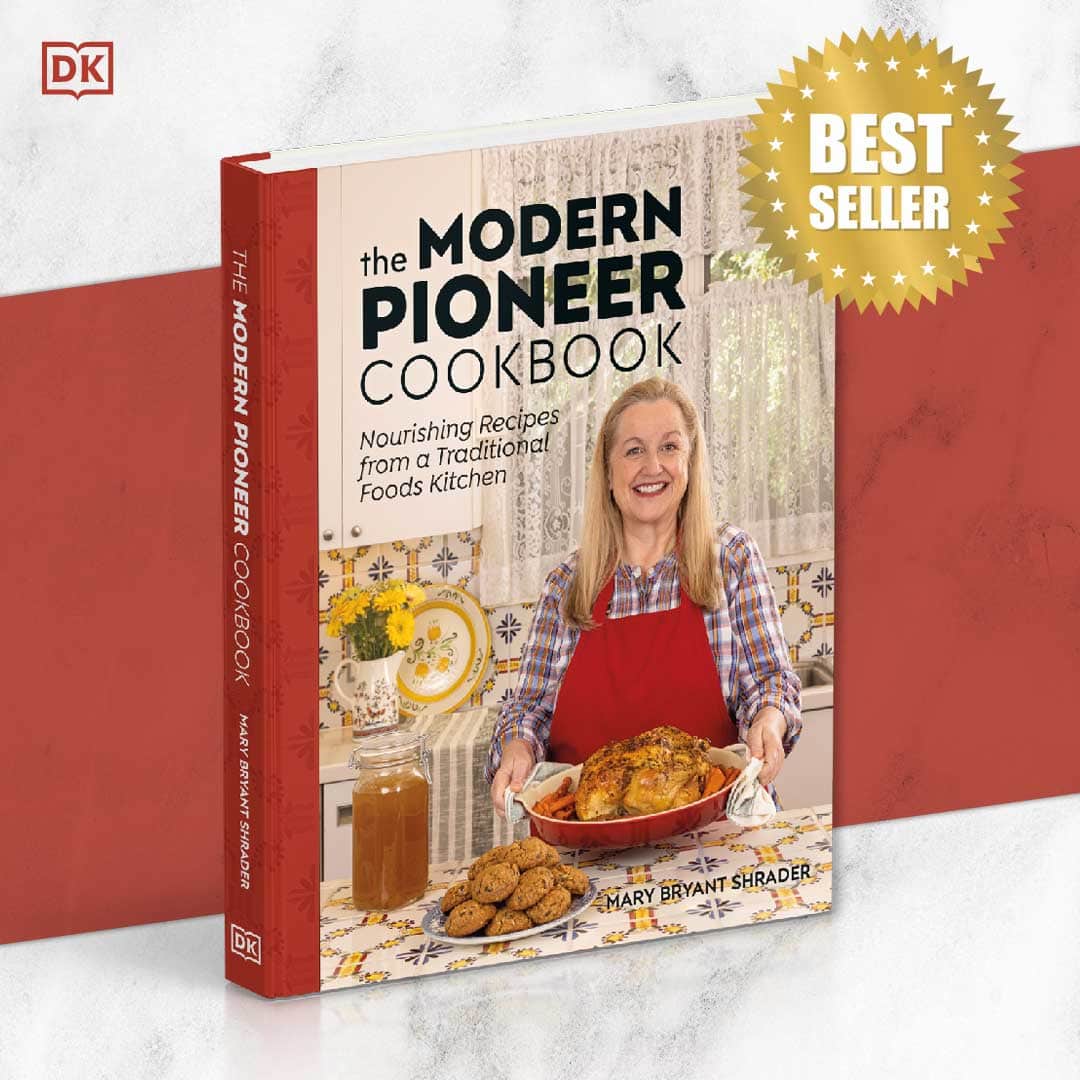
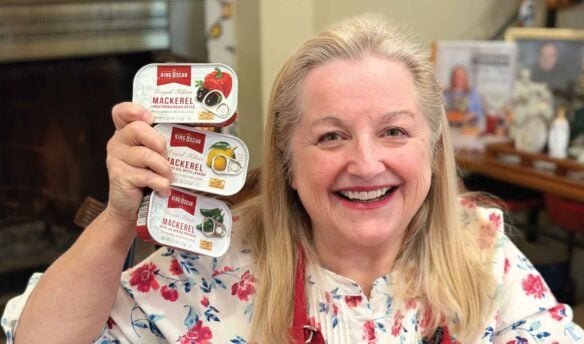


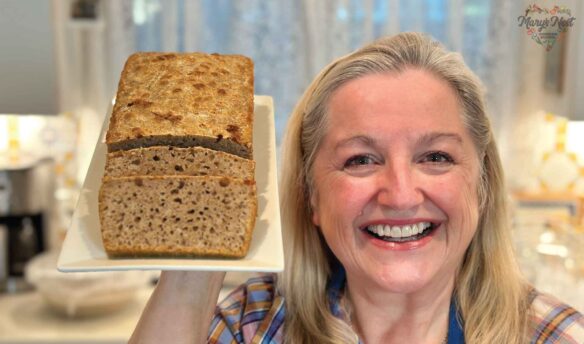
Yummy muffins, thank you for the recipe! Especially good with pumpkin puree and pumpkin pie spice!
Hi Heidi,
Yay! I’m so glad you enjoyed the recipe, and yes, the pumpkin is especially delightful to enjoy in the fall.
Love and God bless,
Mary